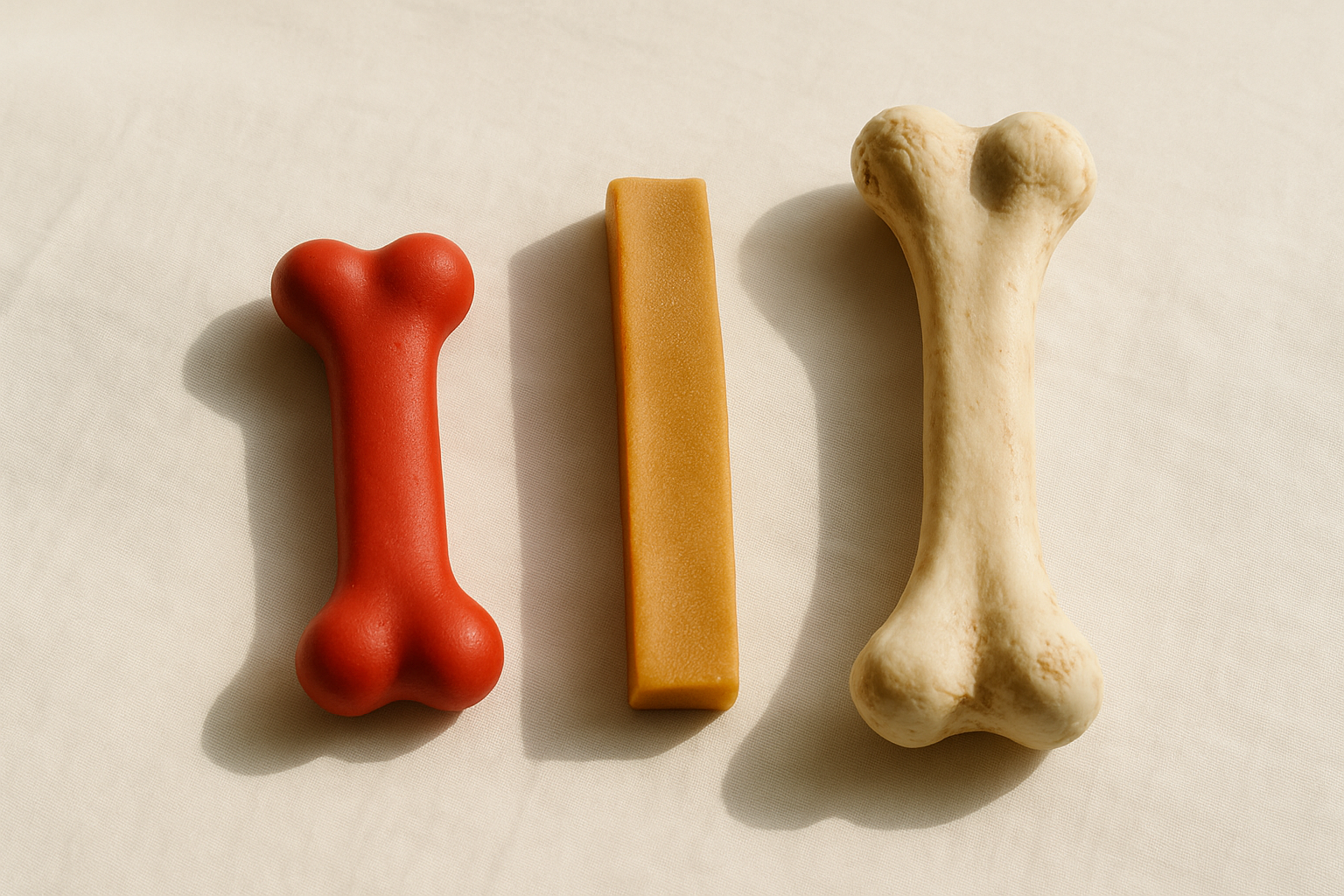Yak Chews vs. Traditional Dog Chews: Which Is Better for Your Pet?
When it comes to keeping our furry friends entertained and satisfied, dog chews play a vital role. However, with so many options available, it can be challenging to determine the best choice for your pet. In recent years, yak chews have gained popularity, often touted for their health benefits and longevity. But how do they stack up against traditional dog chews? Let’s dive into the details and find out why Devil Dog Pet Co loves yak chews.
What Are Yak Chews?
Yak chews are made from the milk of yaks, typically sourced from the Himalayas. The milk is processed and hardened into a dense, long-lasting chew that dogs love. These chews are high in protein and low in fat, making them a healthy alternative for your pup. Additionally, yak chews are lactose-free, which means they can be a great option for those dogs who may have trouble digesting dairy products.
Benefits of Yak Chews
- Long-lasting: Unlike many traditional chews, yak chews can withstand vigorous chewing, providing hours of entertainment.
- Natural ingredients: Made with minimal processing, yak chews are a wholesome choice, free from artificial additives.
- Dental health: Chewing on these hard treats can help remove plaque and tartar buildup, promoting better dental hygiene.
- High in protein: The protein content supports muscle health, making it beneficial for active dogs.
Traditional Dog Chews: The Familiar Option
Traditional dog chews come in various forms, from rawhide to bully sticks and everything in between. While these options can also provide entertainment and satisfy a dog’s natural urge to chew, they come with their own set of pros and cons.
Pros and Cons of Traditional Chews
- Variety: Traditional chews offer a wide range of flavors and textures, appealing to different dog preferences.
- Risk of choking: Some traditional chews, especially rawhide, can pose a choking hazard or lead to digestive blockages.
- High fat content: Many conventional dog chews can be high in fat, which may not be suitable for all dogs, especially those on weight management plans.
- Shorter lifespan: Traditional chews often don’t last as long as yak chews, meaning they need to be replaced more frequently.
Which Is Better for Your Pet?
The right choice ultimately depends on your dog’s individual needs, preferences, and dietary restrictions. If you’re looking for a healthy, long-lasting option, yak chews are an excellent choice that can provide numerous benefits. They are particularly appealing for dogs that are aggressive chewers, as they can stand up to the test of time.
On the other hand, if your dog enjoys a variety of flavors and textures, traditional dog chews may be a fun addition to their snack rotation. Always ensure that whatever chew you choose is appropriate for your dog’s size and chewing habits to minimize any risks.
Conclusion
In the debate between yak chews and traditional dog chews, yak chews emerge as a strong contender for their health benefits and durability. By considering your dog’s specific needs and preferences, you can make an informed decision that keeps their tail wagging and their health in check. Experimenting with different options can also help you find the perfect chew for your furry friend!

Leave a Reply